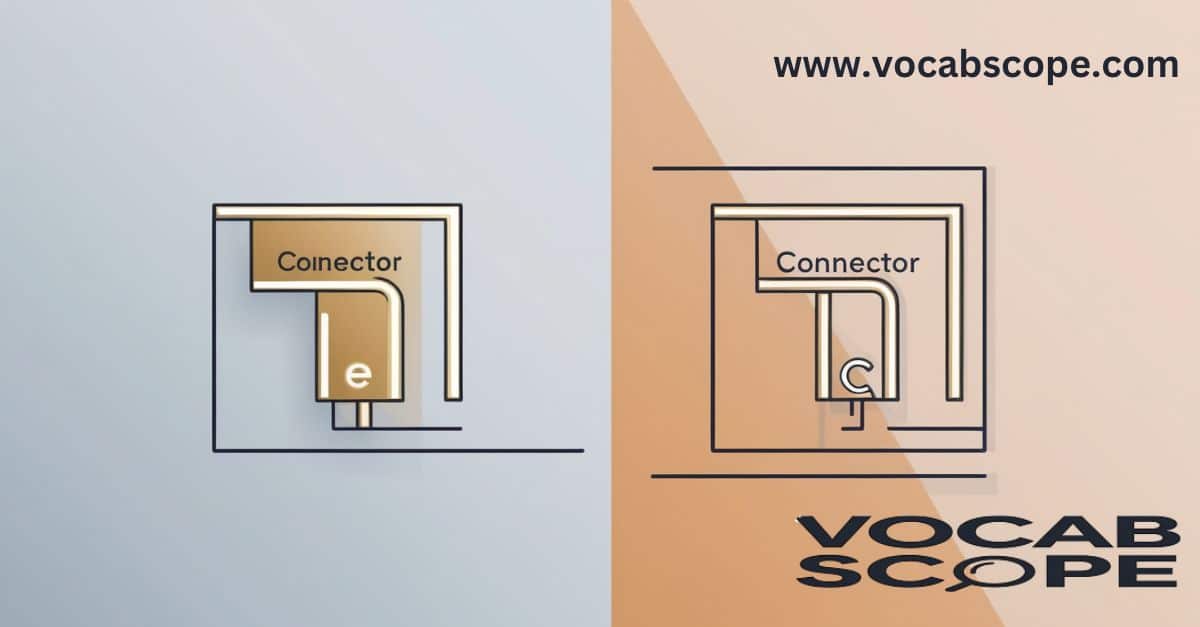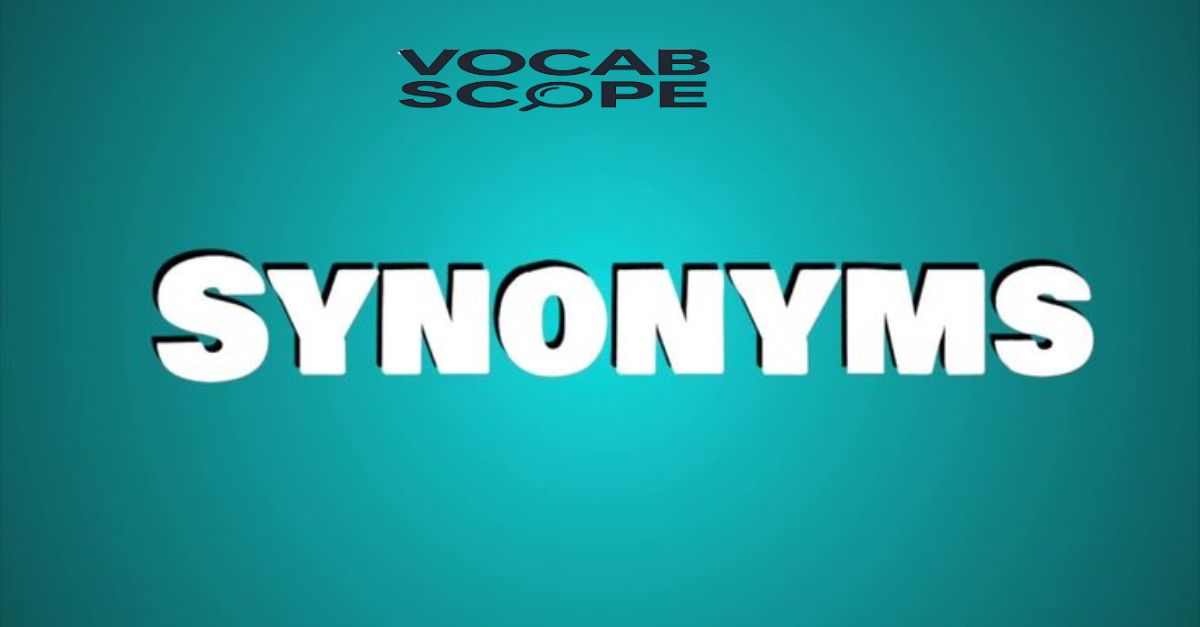In the vast realm of the English language, certain words often spark confusion among writers and speakers alike. One such pair that frequently raises eyebrows is “connector” and “connecter.”
This article delves deep into the heart of this common dilemma, exploring the correct spelling, usage, and evolution of these terms. Whether you’re a native English speaker, a language enthusiast, or someone grappling with the intricacies of grammar, this comprehensive guide will help you navigate the connector vs. connecter debate with confidence.
What do “Connector” and “Connecter” Mean?
At their core, both “connector” and “connecter” refer to something that joins or links two or more things together. This could be a physical object, like a device that connects electronic gadgets, or a more abstract concept, such as words that connect ideas in a sentence.
Let’s break it down:
- Connector: This spelling is widely accepted and used in modern writing. It refers to a person, thing, or device that connects.
- Connecter: This alternative spelling, while less common, has historically been used with the same meaning.
Both terms derive from the verb “connect,” which means to join, link, or fasten together. The suffix “-or” or “-er” is added to create a noun that describes the agent performing the action.
Examples in Context
To better understand how these words are used, let’s look at some examples:
- “The USB connector allows for quick data transfer between devices.”
- “She’s a great connector of people, always introducing like-minded individuals.”
- “The new software acts as a connector between our sales and inventory systems.”
In each of these cases, “connector” serves as a noun describing something or someone that connects.
“Connector” or “Connecter”: Which One Should Be Used?

The choice between “connector” and “connecter” largely depends on your audience and the context in which you’re writing.
- Use “Connector” in formal writing, academic papers, and professional documents. It aligns with standard grammar and syntax rules.
- “Connecter” may appear in some informal contexts or older texts, but using it might confuse your readers.
Common Applications
| Application | Recommended Spelling |
| Academic Writing | Connector |
| Technical Manuals | Connector |
| Informal Writing | Connector (preferred), Connecter (occasionally) |
In modern writing, the trend clearly favors “connector.”
| Aspect | Connector | Connecter |
| Spelling | Standard and widely accepted | Less common, often considered outdated |
| Usage | Preferred in modern writing | Rarely used in contemporary texts |
| Meaning | Refers to a device or word that links elements | Synonymous but less frequently used |
| Context | Used in technical, academic, and everyday writing | Found in older texts or informal contexts |
| Audience Understanding | Clear and easily understood by readers | May confuse modern audiences |
| Examples | “The USB connector links devices.” | “The connecter is outdated.” |
“Connector” or “Connecter”: Which One Should Be Used?

In the battle of connector vs. connecter, “connector” emerges as the clear winner in modern English usage. Here’s why:
- Prevalence: “Connector” is far more common in contemporary writing and speech.
- Consistency: Most style guides and dictionaries list “connector” as the primary spelling.
- Clarity: Using “connector” aligns with the majority of English speakers’ expectations, reducing potential confusion.
While “connecter” isn’t technically incorrect, it’s considered outdated and is rarely used in current English. Opting for “connector” in your writing ensures clarity and adherence to modern conventions.
Why and How “Connecter” Became Outdated
The evolution of language is a fascinating process, and the shift from “connecter” to “connector” is a prime example. Several factors contributed to this change:
- Standardization: As English evolved, there was a push towards standardizing spellings, especially in American English.
- Analogy: Many words ending in “-or” (like “conductor” or “inventor”) influenced the spelling of similar terms.
- Phonetics: The “-or” ending more closely mirrors the pronunciation for many English speakers.
- Technological influence: With the rise of electronic devices and computer software, “connector” became more prevalent in technical jargon.
Analogy with Similar Verbs:
To better understand this shift, let’s look at some analogous verb-to-noun transformations:
| Verb | Noun Ending in -or | Noun Ending in -er |
| Conduct | Conductor | (Not used) |
| Invent | Inventor | (Not used) |
| Direct | Director | (Not used) |
| Connect | Connector | Connecter (rare) |
As you can see, the “-or” ending is consistently used in these examples, which likely influenced the preference for “connector” over “connecter.”
Dictionaries and Style Guides:
Major English dictionaries and style guides overwhelmingly favor “connector”:
- Oxford English Dictionary: Lists “connector” as the primary spelling, with “connecter” as a variant.
- Merriam-Webster: Only includes “connector” in its main entries.
- Chicago Manual of Style: Recommends “connector” in formal writing.
- Associated Press Stylebook: Uses “connector” exclusively.
These authoritative sources reflect the current standard in English usage, further cementing “connector” as the preferred spelling.
Origins of the Word “Connector”
The term “connector” has a rich linguistic history rooted in Latin and has evolved over time to become a standard part of the English language.
| Element | Origin and Explanation |
| Prefix | “Con-“ (Latin): Meaning “with” or “together.” This prefix indicates a joining or combining action. |
| Root | “Nect” (Latin “nectere”): Meaning “to bind” or “to tie.” This root highlights the core function of a connector as something that joins. |
| Suffix | “-or”: A common English suffix used to denote an agent or something that performs an action. In this case, it implies a device or entity that connects. |
Etymology Timeline
- Middle English: The term began to appear in various forms, with influences from Old French.
- 16th Century: The term “connector” emerged in its modern spelling as the need for technical language grew, particularly in engineering and communication.
- Contemporary Usage: Today, “connector” is widely recognized in multiple contexts, including technology, linguistics, and everyday conversation.Here are some examples of how to use the word “connector” in various contexts:
Examples in Context
Technology use
- “The HDMI connector allows you to link your laptop to the television for a better viewing experience.”
- “USB-C is a versatile connector that supports both charging and data transfer.”
Language use
- “Transition words serve as connectors that help to link ideas smoothly in writing.”
- “A good connector in speech can significantly enhance communication clarity.”
Relationships use
- “A mutual friend can act as a connector between two people from different social circles.”
- “Networking events often provide valuable connectors for professionals seeking new opportunities.”
Education use
- “Teachers use graphic organizers as visual connectors to help students relate concepts.”
- “In an essay, effective connectors guide the reader through the argument.”
Everyday Life use
- “The train tracks serve as a physical connector between the two cities.”
- “In cooking, spices can act as connectors that enhance the flavors of different ingredients.”
These examples illustrate the versatility of the term “connector” in various contexts, showcasing its role in linking ideas, objects, and relationships.
Understanding the origins of “connector” not only enriches your vocabulary but also emphasizes its role in linking ideas, objects, and concepts across different fields.
Synonyms of the Word “Connector”

Expanding your vocabulary can enhance your writing. Here are some synonyms for “connector” that might come in handy:
- Joiner
- Linkage
- Coupler
- Interconnector
Each of these terms has its specific context, so choose wisely based on your audience and purpose.
Synonym Table
| Synonym | Context |
| Joiner | More informal settings |
| Linkage | Technical or scientific contexts |
| Coupler | Engineering and mechanics |
| Interconnector | Telecommunications |
Conclusion
In the connector vs. connecter debate, the verdict is clear: “connector” is the preferred spelling in modern English. Although not entirely wrong, “connecter” is outdated, so it’s best to avoid using it in contemporary writing.
Remember these key takeaways:
- Use “connector” in both formal and informal writing.
- Be consistent in your usage to maintain clarity.
- Consider context when choosing synonyms or alternatives.
By understanding the history, usage, and evolution of “connector,” you’re now equipped to use this term confidently in your writing and speech. Whether you’re discussing grammar, technology, or networking, you can connect ideas with precision and clarity.

“Robert Henry is an experienced blogger with a passion for language and education. His insightful posts on Vocab Scope offer readers valuable tips on vocabulary and grammar. With a background in linguistics and a knack for clear, engaging writing, Robert is dedicated to helping others enhance their communication skills.”






